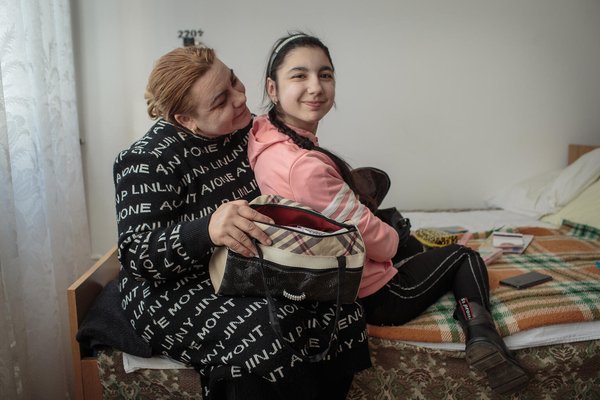Wellbeing of caregivers of children with disabilities
Being a parent is a rewarding, yet challenging job. Raising a child who has disabilities can at times make the job even tougher. Some parents describe raising a child with disabilities as having the ‘switch button’ constantly ‘on,’ and every other challenge they face is made exponentially harder because they can never be ‘off’. Being the caregiver of a child with disabilities has its own unique sets of nuances, experience and challenges that other parents may not always understand. It also may require developing specific parenting skills. For example, parents may feel overwhelmed as they try to handle countless doctor and therapy appointments for their child, dealing with teachers and schools administration along with running a household and working. Here are a few strategies on stress and time management that may be useful:
Planning, prioritization, and dedication:
- Prioritize and share responsibility, delegating some of them, organizing paperwork, and creating a schedule can make a big positive difference. For examples, have a written plan, schedule and know exactly what paperwork is needed and when each appointment needs to be taken and who will accompany your child.
Self-care:
- As a child caregiver, you need to be the number one priority, so make sure you eat and sleep properly, and go for regular health checks.
- Practice self-care, anything that brings you joy. For example, meeting friends and family, reading book in the café alone, exercise, catch up on sleep.

Getting support through:
- Get specialised support .hile there is still a great stigma associated with seeking support from mental health specialists, many studies prove that this is a great tool to prevent and address depression and feel stronger to deal with loads of responsibilities.
- Informal networks, such as family and friends. It is ok to ask for help people you trust.
- Semi-formal networks like family/parent associations providing peer support for families with children with disabilities, local libraries, peer support groups, forums of parents of children with disabilities, etc. These groups may help you to connect to the right services much faster, support your mental health and will be a part of your support system.
- Local/community organizations, civil societies providing services for children with disabilities, Organizations of persons with disabilities. They will be a good resource for learning about available services, providing mentorship, positive role models as your child grows.
- Support for yourself may be available through health care services, home visiting services, community-based social services, early childhood intervention services, parenteral support services,preschool/kindergarten, or other.
- Inquire about respite care. Respite care is a service that allows the parent and child to have separate time for part of a day, overnight, or several days. It can be done at home or out of the house.
Average Rating: ☆ ☆ ☆ ☆ ☆ (0 reviews)

